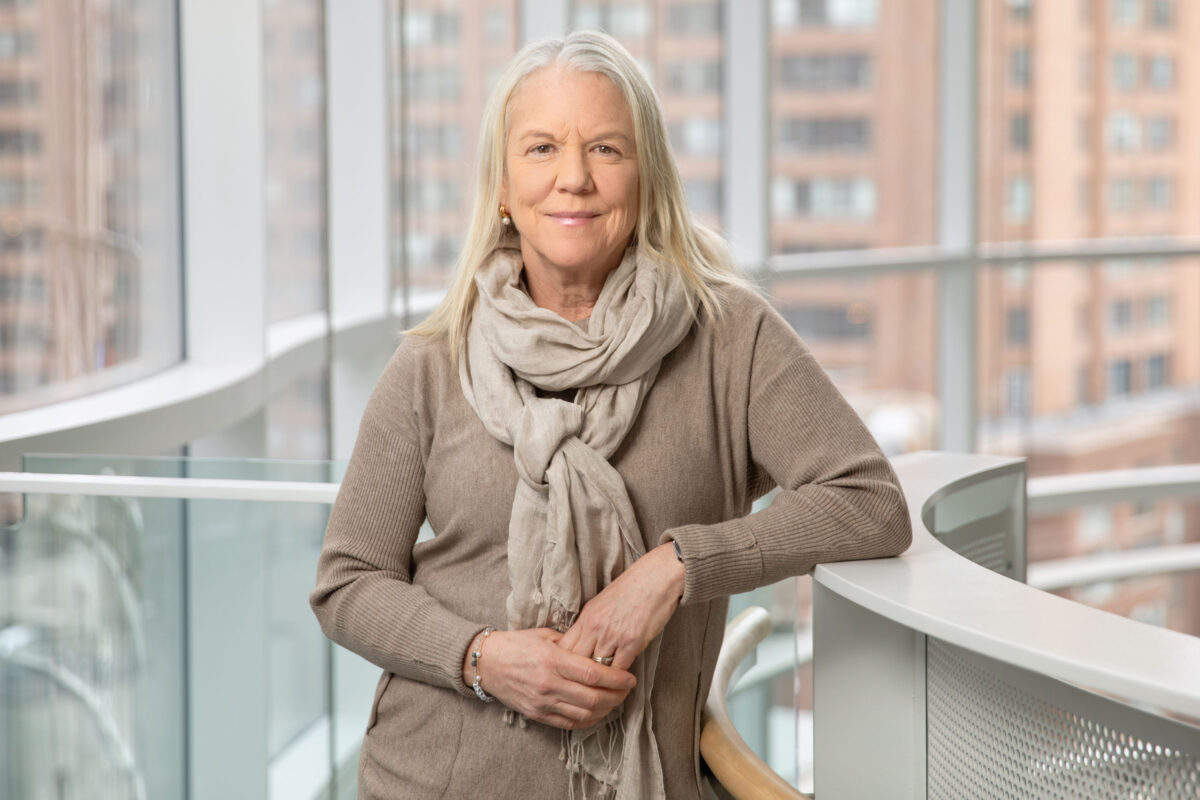Professor Jennifer Stinson has been renewed as the Mary Jo Haddad Nursing Chair in Child Health for a third term. The position is jointly held between the Lawrence Bloomberg Faculty of Nursing and The Hospital for Sick Children (SickKids).
“As a nursing leader at SickKids, Mary Jo Haddad made a mark on the hospital. She was a tremendous nursing role model for me, and to be in this Chair position in her name and do this work in child health in her stead is an honour,” says Stinson, Co-Director of the Pain Centre, Senior Scientist and Nurse Practitioner in the Chronic Pain Program at SickKids.
Raising awareness of nurse scientists
For Stinson, the Chair has also raised awareness of the scope of nurse clinician scientists and has provided added support in translating her evidence-based research outputs into clinical practice.
“Jennifer Stinson and her program of research have made a considerable impact in her first two terms as the Mary Jo Haddad Nursing Chair in Child Health, earning her prestigious awards recognizing the importance of her work for children with chronic pain. I know that her program of research will continue to benefit patients and inspire future Bloomberg Nursing researchers in their goal to improve quality care for young people,” says Robyn Stremler, dean of the Lawrence Bloomberg Faculty of Nursing.
Building iCanCope
In her first two terms as Chair, Stinson developed a mobile app called iCanCope which is designed to help children and youth with different painful chronic conditions like chronic pain, arthritis and youth living with sickle cell disease (SCD). The app includes four key features, which allow users to track their symptoms and set structured goals to improve their daily function. It also provides them with access to a curated library of evidence-based resources and allows them to participate in a community discussion platform with other young people living with chronic pain.
“Jennifer’s renewal as Chair underscores her leadership in chronic pain care and research, providing children and youth with a valuable tool to help manage their symptoms and improve their quality of life,” says Judy Van Clieaf, Chief Nursing Officer and Vice-President, Clinical Operations at SickKids.
The app has been well-received by patients in various do-design sessions and clinical studies and by clinic staff who were involved in its development and evaluation. Stinson recently completed a pan-North American NIH funded trial of the app in adolescents with SCD. This study, published in Pain, demonstrated program effectiveness in significantly improving pain intensity and number of days with pain at the 6-month follow-up. In her third term as Chair, Stinson is focused on getting the app into the hands of patients and their families while reducing barriers to access, through collaboration with pediatric SCD clinics from across Canada, using an implementation-effectiveness study design.
Stinson is also exploring barriers and facilitators to having clinicians prescribe the app in clinics. “Having a clinical champion is key to ensuring the app gets implemented in everyday clinical practice. Our end goal is to make this app freely available to all young people with sickle cell disease to improve their pain and quality of life,” says Stinson.
Reducing barriers to implementation
Looking ahead, Stinson is also working with research trainees to examine the ongoing stigma faced by patients with SCD and how that creates a barrier for them and their ability to access effective pain strategies, including the digital intervention iCanCope.
Many of the SCD patient partners involved in the pilot study have shared they are often stigmatized as drug seekers when they arrive at clinics for pain management. As a result, Stinson and her team are in the development phase of including a stigma intervention as a component of the app, which might include strategies for young people when they encounter those barriers.
“In my clinical practice as an NP I have seen the impact of pain. There is a lot of appetite for this app, and I look forward to scaling it up to empower young people and improve their lives,” says Stinson.
